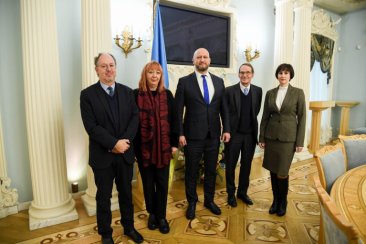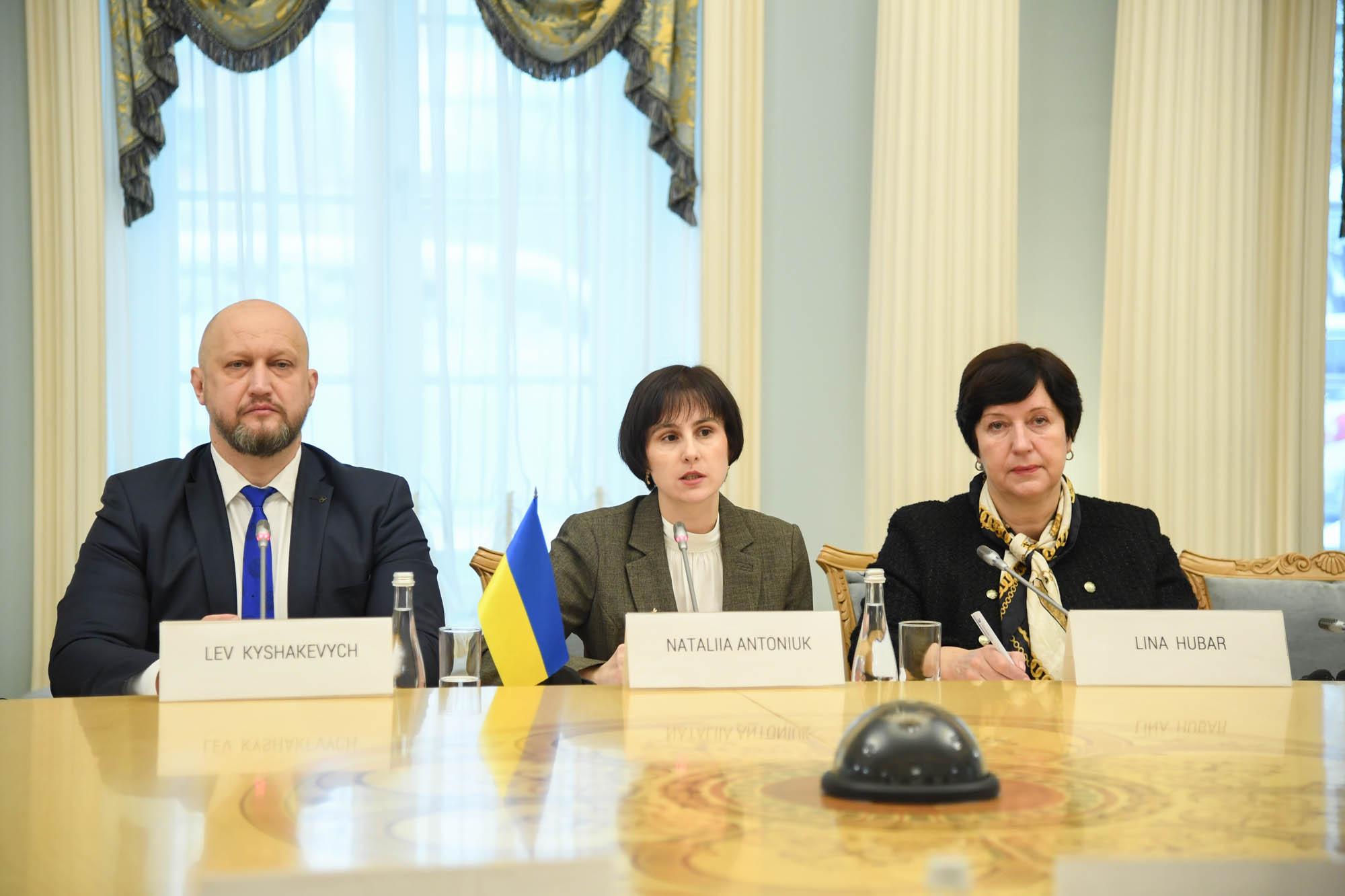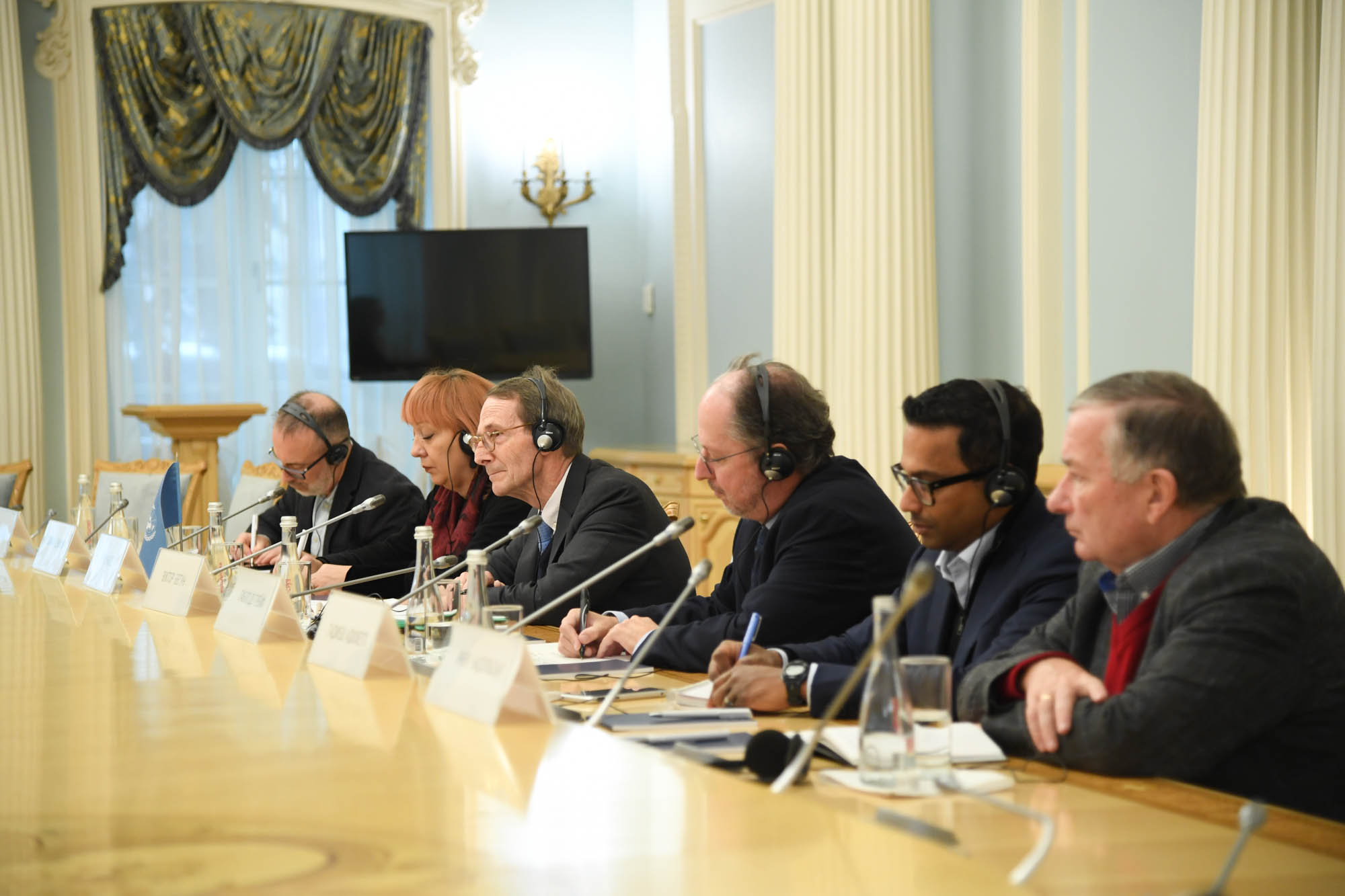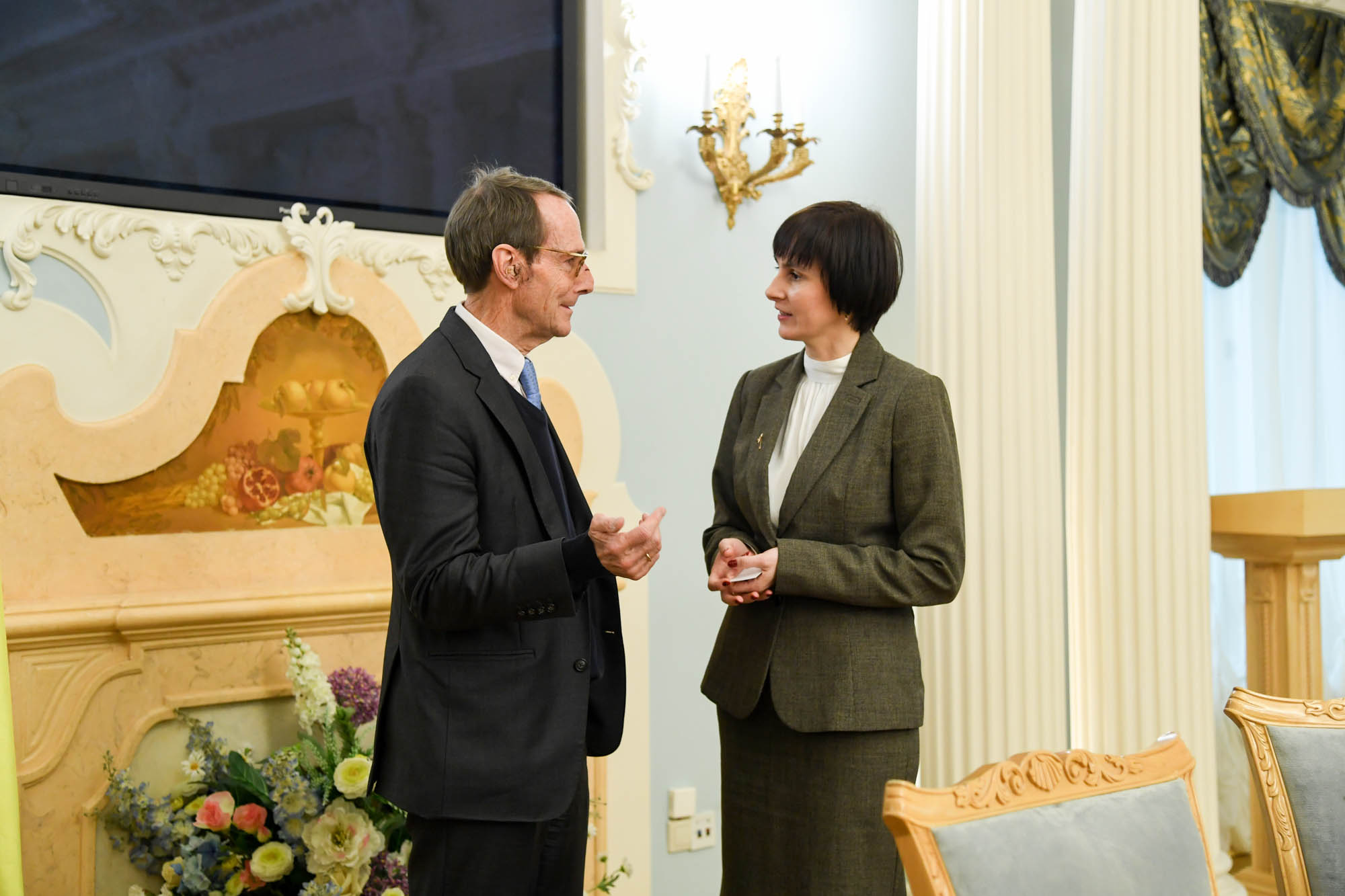Contact center of the Ukrainian Judiciary 044 207-35-46

On November 30, 2022, Secretary of the First Judicial Chamber of the Criminal Cassation Court within the Supreme Court Nataliia Antoniuk and Judge of the Criminal Cassation Court within the Supreme Court Lev Kyshakevych discussed with the Chair of the UN Independent International Commission of Inquiry on Ukraine Erik Møse, members of the Commission Jasminka Džumhur and Pablo de Greiff issues relating to human rights violations and war crimes committed as a result of Russian full-scale armed aggression against Ukraine.
Nataliia Antoniuk thanked the representatives of the Commission for the meeting and said that it was incredibly important for Ukraine not to be left alone in this difficult time. The Secretary of the Chamber drew attention to the fact that Russia disregarded the norms of international humanitarian law and that the brutality of the aggressor using the scorched earth tactics and the crimes committed by him in Ukraine were striking the whole world.
Nataliia Antoniuk focused on the importance of documenting war crimes, violations of human rights and international humanitarian law in order to further bring the perpetrators to justice. In this context, the report of the Commission on the events in Kyiv, Chernihiv, Sumy and Kharkiv regions during February - March 2022, submitted on October 18, 2022 for consideration by the 77th session of the UN General Assembly, is of particular importance.
The report found that war crimes had been committed. The Commission found that the continuous use of explosive weapons with a wide area of effect in populated areas had resulted in the death and injury of civilians. The Commission also documented indiscriminate attacks using cluster munitions, unguided rockets and air strikes as Russian forces attempted to take over population centres. These weapons systems have a high probability of indiscriminate action and cause significant damage to civilians. Most of the confirmed deaths since the outbreak of hostilities have indeed been caused by these weapons.
According to the speaker, the Russian aggressors who committed violence, torture, murder and other crimes against the civilian population must be punished. And in this context, international assistance to bring the perpetrators to justice is invaluable. Ukraine hopes that through, in particular, the cooperation of states in the form of an ad hoc international tribunal, the actions of the aggressor will be fairly assessed, and he will be duly punished.

Erik Møse, Chair of the UN Independent International Commission of Inquiry on Ukraine, also expressed his gratitude for the meeting with the SC judges, since it was important to hear the judicial community speak up about the challenges that had arisen, in particular, for the judiciary in connection with the Russian aggression, as well as to exchange views on problematic issues.
Erik Møse emphasized that the Commission continued its work to investigate violations of human rights and international humanitarian law, to collect evidence of war crimes, and to provide recommendations on measures to bring the perpetrators to justice.
The speaker expressed his hope that the results of the work of the Commission would be useful for all representatives of the legal system (prosecutors, investigating judges), and would increase the efficiency of criminal proceedings on war crimes.
Member of the Commission Pablo de Greiff paid attention to the fact that currently Ukraine faced new challenges: in particular, the application of previously not applicable national and international legislation, the investigation of a large number of criminal proceedings on war crimes, and the consideration of new categories of cases. And at the moment the judges of Ukraine were developing competencies that were not required in peacetime.
Pablo de Greiff stressed that the international community shared Ukraine's commitment to the rule of law. After all, it is the observance of this principle that unites all democratic countries.
His colleague Jasminka Džumhur focused on the importance of collecting evidence for the investigation of war crimes and trial, coordination of actions between the prosecutor's office, investigative and judicial authorities.
Judge of the Criminal Cassation Court within the Supreme Court Lev Kyshakevych said that the work of the Commission would serve as one of the main tools in further efforts to draw attention to Russia's crimes against Ukraine and bring it to international legal responsibility for this.
Lev Kyshakevych stressed that Ukraine was fighting not only for its territory, the life and safety of citizens, respect for human rights, but also for the entire democratic world and for the rule of law. He is convinced that with the help of the international community, it will be possible to stop Russia's aggression against Ukraine and bring the perpetrators to justice.
Responding to questions from the Commission representatives, the SC CCC judges described measures to enhance the competence of Ukrainian judges in the field of war crimes: familiarization with the case law of the International Criminal Court and the ad hoc international tribunals; communication with foreign judges and experts; discussions organized by the Supreme Court with judges of first and appellate instances on issues of criminal proceedings in war crimes; training by the National School of Judges of Ukraine on the consideration of criminal proceedings for crimes against the foundations of Ukrainian national security and war crimes; participation of scientists in solving the issues of qualification of war crimes, features of evidence collection, their admissibility, etc. Through such comprehensive measures, Ukrainian judges are now ready to consider war crime cases.

In addition, the parties discussed the collection of appropriate and admissible evidence in accordance with the procedural provisions of Ukrainian legislation; the possibility for the courts of Ukraine to use the evidence collected by the prosecutors of the ICC, independent international experts; Ukraine's institutional capacity to conduct expert reviews; avoiding re-interrogation of victims to prevent their re-victimization; ensuring the rights of the accused, etc.
Erik Møse thanked the judges of the Criminal Cassation Court within the Supreme Court for a productive meeting, fruitful dialogue and expressed hope for further cooperation. Nataliia Antoniuk and Lev Kyshakevych emphasized that it would be possible to win the war through joint efforts. Today, both Ukraine and international partners have the goal of ensuring the rule of law and justice. The world needs to see that Ukrainian judges are objective and impartial. Their judgments should be fair not only in Ukraine, but also be seen as such by the international community. To achieve this goal, the activities of the Commission, which collects evidence and provides an independent assessment of the events that are taking place in Ukraine due to Russian aggression, are important.
The event was also attended by the Chief of the Secretariat of the UN Independent International Commission of Inquiry on Ukraine, Joël Mermet, members of the Commission's Secretariat Tajesh Adhihetty and Janek Nadolski, Head of the Division of International and Legal Cooperation of the Supreme Court, Lina Hubar.

For reference. In Resolution 49/1, adopted on March 4, 2022, the UN Human Rights Council established an Independent International Commission of Inquiry on Ukraine with a mandate to conduct a comprehensive investigation into all human rights violations and war crimes committed as a result of Russia's full-scale armed aggression against Ukraine. The Council required the Commission to establish the facts, circumstances and root causes of any such violations and, where possible, to identify those responsible for these violations, as well as to provide recommendations, including on measures of prosecution.